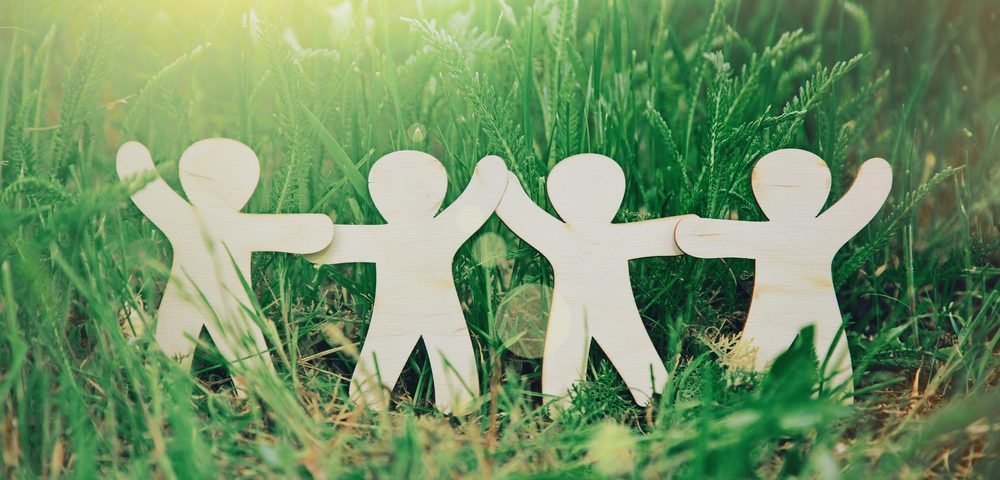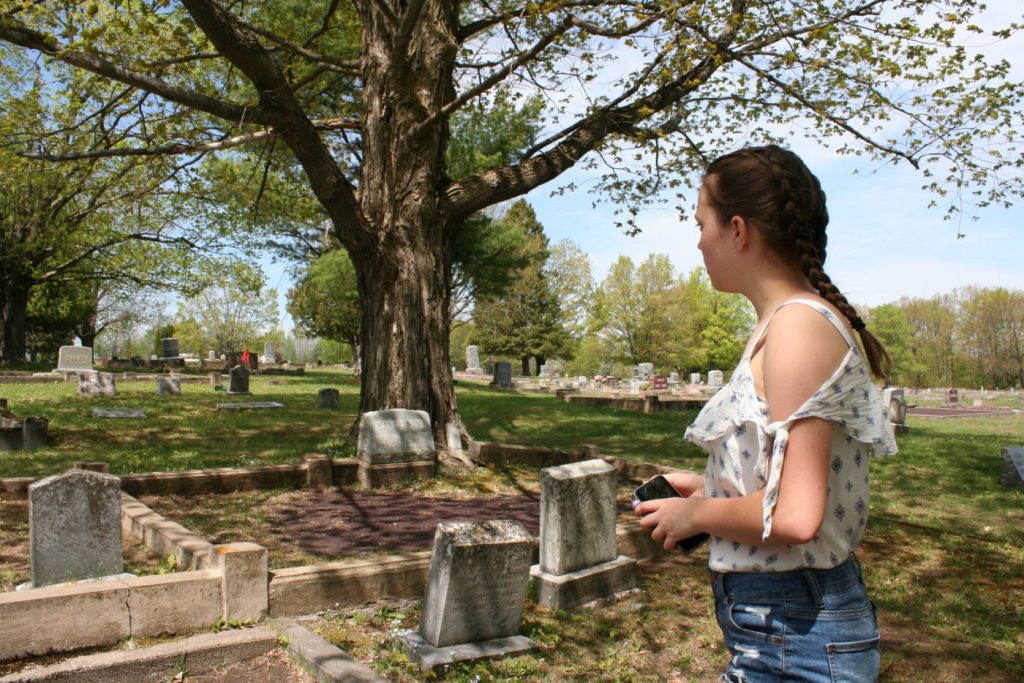‘Graves Are for the Living’
Written by |

On Memorial Day, my mom, the kids, and I visited Lakeside Cemetery in Hancock, Michigan. My mom and the kids left in time to attend the Memorial Day service. I arrived late, just as it concluded, because I needed to help Todd in the bathroom and then set him up at his computer. My son, Isaac, jumped in my van and showed me a handful of spent shells he had collected after the ceremony. They were still warm and smelled like gunpowder.
We drove to my dad’s gravesite, where a headstone records the dates of his birth and death. The black granite is adorned with a cross and two interlinked wedding rings with the date of his marriage to my mother. Also engraved in the stone are my mom’s name and birth date.
I scrubbed splotches of white bird poop that had splattered on the headstone with a disinfectant wipe. Isaac rinsed the raised monument multiple times using a plastic bottle filled with water from a nearby spigot. My mom and my daughter, Sara, caught up with us, and Sara used a bucket to water purple violets that we had planted last year. I was glad to see that they came up nicely.
Sara’s third-grade teacher died of cancer two years ago and is buried two rows up from my dad. We hunted for my grandparents’ site, which was harder to find because it has a flat marker. Sara washed the stone and watered the flowers. Yards from there, my mom and I paused near the grave of someone I used to babysit. He died when he was just a young man.
We drove to an older part of the cemetery to visit the plots of my great-grandparents. Gustaf and Selma Siirtola were born in Finland in 1881 and 1885, respectively. They died before my father was born. Waino and Lempi Manuelson, also from Finland, were born in 1898 and 1899. My dad knew his grandpa Waino, but Lempi died when his mom was just 13 years old.

Kristin’s daughter, Sara, visits the gravesite of her great-great-grandparents. (Photo by Kristin Neva)
Some lives are cut too short, and that is even more apparent in the older part of the cemetery, which has many graves for children who died of illnesses that can be treated today.
But modern medicine still cannot cure ALS. My husband was diagnosed with the disease when he was 39, and though he has outlived the prognosis of two to five years, it’s hard to say how much longer he has.
A few years ago, I started thinking about where I will bury Todd when the time comes. I asked him, but he said he doesn’t have a preference.
He said, “Graves are for the living.”
I will likely purchase a plot for us at Lakeside Cemetery, near my dad and my grandparents.
I’ve contemplated if I should put my name next to his. I once heard of a woman who regretted seeing her name on her deceased husband’s headstone, because it made her feel like her life was over before her time. She replaced the headstone with a new one without her name on it.
I’ll likely still be relatively young when Todd is gone. I wonder if other middle-aged people who aren’t living with terminal illness contemplate these decisions.
The cemetery displays the fleetingness of life. We are born. We live. We all die. Let’s use our time to live meaningful lives.
***
Note: ALS News Today is strictly a news and information website about the disease. It does not provide medical advice, diagnosis, or treatment. This content is not intended to be a substitute for professional medical advice, diagnosis, or treatment. Always seek the advice of your physician or other qualified health provider with any questions you may have regarding a medical condition. Never disregard professional medical advice or delay in seeking it because of something you have read on this website. The opinions expressed in this column are not those of ALS News Today or its parent company, Bionews Services, and are intended to spark discussion about issues pertaining to ALS.






Dorreen Dembski
My husband passed this weekend from ALS. From his diagnosis to his passing was less than 6 months. I still haven't wrapped my head around this disease, yet here I am planning for his memorial. As I plan his funeral and service, I'm constantly thinking about what he would like. He had purchased his own urn, years ago because he is also a cancer survivor. That helped me know what to do. The rest - it is up to me. I am using this time to honor him and for my peace, and the peace of our children, family, and friends. I don't think there is a right or wrong decision. I think this has to be right for you, him, and your family.
Kristin Neva
You have my sympathy--so tough.